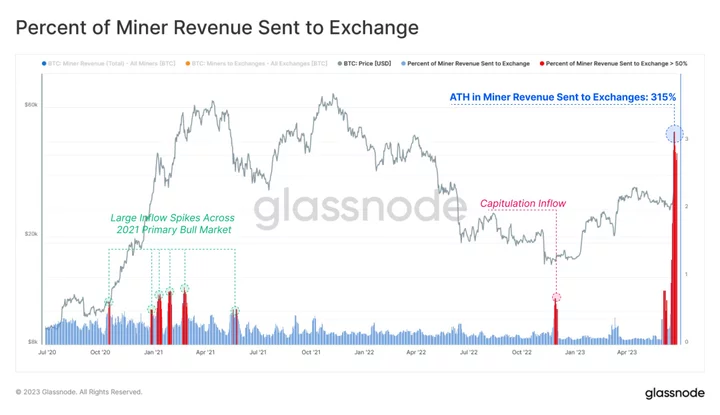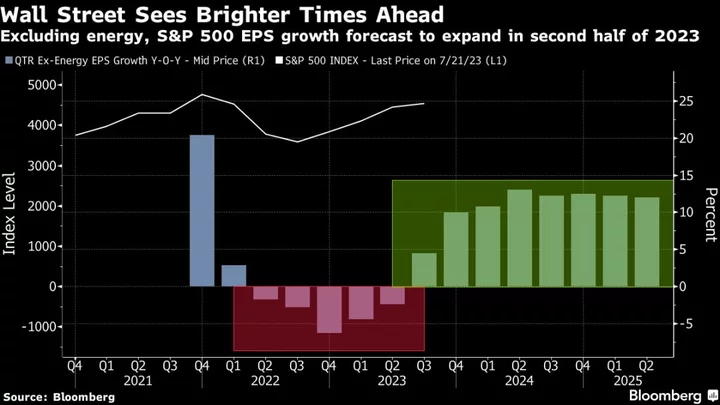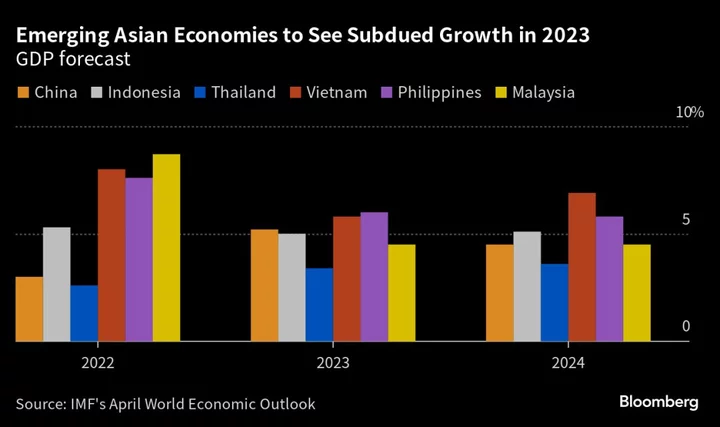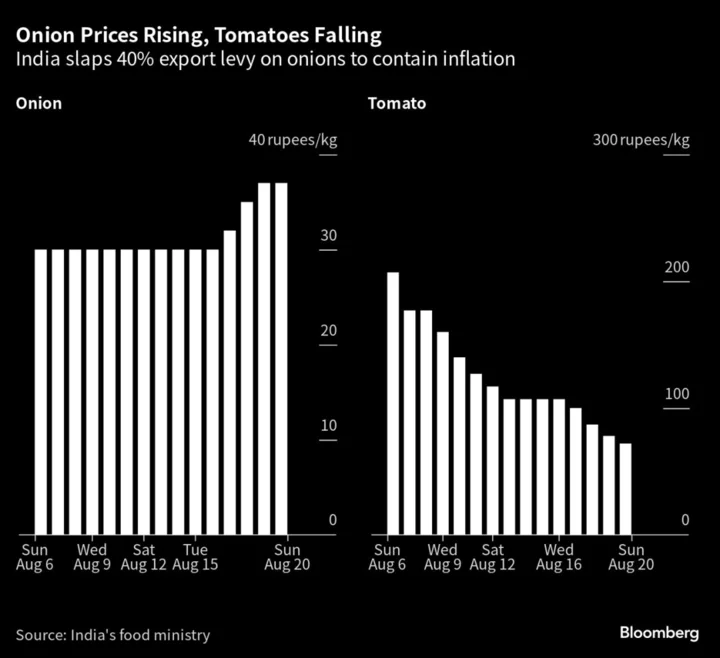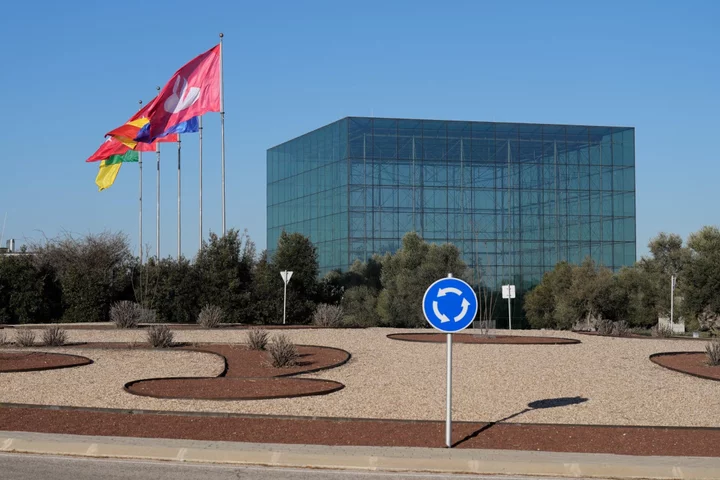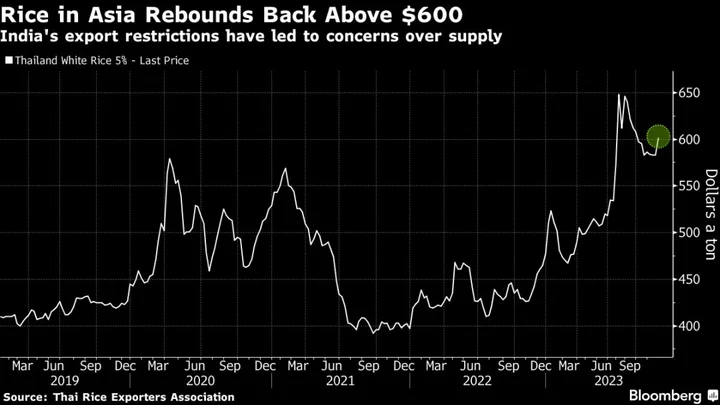Bitcoin miners, many of whom have traditionally held onto the cryptocurrency after creating the digital assets, have been selling the tokens during the current rise in prices.
The percentage of miner revenue sent to exchanges hit all-time highs in the past few weeks, to according to digital asset manager Grayscale’s June monthly newsletter, citing data from crypto analytics firm Glassnode.
“I think many of these miners learned their lessons in the past two years. Back then, they liquidated coins in the bear market when Bitcoin’s price was low and they really needed the cash,” said Colin Harper, head of content and research at crypto-mining services company Luxor Technologies. “Some miners are probably just using the recent move in Bitcoin to liquidate mined coins while the price is higher.”
Bitcoin has rallied more than 80% this year to around $31,000. Prices began the year at around $16,500. The largest digital asset reach almost $69,000 in November 2021.
Last summer, a flurry of public crypto-mining companies sold large amounts of their coin reserves amid a Texas heat wave that forced a drop in production and a number of crypto industry meltdowns. Some of the miners have been running with thin margins, Harper said. But more heat waves and Bitcoin’s preprogrammed event are likely to further compress the margins.
The miners in Texas shut off their mining machines amid record power demand last month. The Lone Star state, which has become a crypto-mining hub thanks to its cheap energy and business-friendly regulations, has seen power cost surging. While some of the miners are able to hedge against the rising prices by purchasing power in advance and reselling them back to the grid with a premium, others have to unplug their energy-intensive operations without any compensation.
The curtailment has already been reflected on the mining difficulty, which is a measure of computing power to mine Bitcoin. The bi-weekly figure had been on a steady rise and hit an all-time-high in mid June but it saw a 3.3% decrease in the latest cycle, according to data from btc.com.
Bitcoin miners are also in a race to survive the next ‘halving’ in 2024. The update cuts mining rewards, the new tokens issued to compensate miners’ work that validate transaction data on the network, in half every four years until the token reaches its 21 million cap in about 2140. Mining rewards, which is the main source of revenue for miners, will be down from 6.25 to 3.125 Bitcoin for a miner that successful processes a certain amount of data.
Following the halving, if some miners’ cash flow turns negative, they may have to further finance their operations with cash stowed on their balance sheet, said Matthew Kimmell, digital asset analyst at asset management and research firm CoinShares.
The flow data tracking transactions between miners and exchanges is one of the best proxies for sales of mined coins, but it has limitations. The miners that send their tokens to exchanges may not eventually sell them and the flow data does not include all miners and exchanges.
--With assistance from Vildana Hajric.

